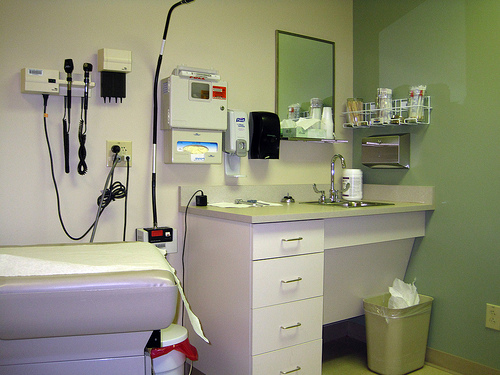<p>When it comes to protecting your health information, you can never be too careful. There are laws in place, such as HIPPA, to help protect your information, but sometimes the law just isn&#8217;t enough. The Open Security Foundation reports that 14% of all security breaches since 2005 have come from the healthcare industry. That&#8217;s a shocking number and is expected to grow. You need to make sure you are taking the appropriate steps to keep information about your doctor&#8217;s visits, your overall health, and prescription information out of the wrong hands. Try these four helpful tips to keep your health information safe.</p>
<h2>Understand the Law</h2>
<p style="text-align: center;"><img class="aligncenter" alt="4 Steps To Take To Protect Your Health Information" src="http://farm3.staticflickr.com/2577/4166002979_2303b74fc2.jpg" width="500" height="375" /><br />
Photo via Flickr by benchilada</p>
<p>Most western countries have privacy acts in place to help keep your health information safe. In the United States, that law is known as HIPPA. The law basically means that your private health information can only be communicated to you. Your doctor is required to ensure that you have proper care, without disclosing specific information about your health to others. Your health insurance company and the company that bills for your insurance company will know your information as well. Make sure you are aware of the local laws before visiting the doctor.</p>
<h2>Know About ePHI</h2>
<p style="text-align: center;"><img class="aligncenter" alt="Entertainment options at the Doctor's office" src="http://farm4.staticflickr.com/3615/3405333630_2f5f674da5.jpg" width="500" height="375" /><br />
Photo via Flickr by comcastvoices</p>
<p>Electronic protected health information (ePHI) is part of the Health Insurance Portability and Accountability Act of 1996 (HIPPA). This is simply a means to provide security regulations for produced, saved, transferred, or received health information that comes in electronic form. Eighteen specific types of electronic information are included in the act.</p>
<p>Some information that is protected includes social security numbers, email addresses, fingerprints, patient names, and past medical history. Any information transferred via PC, tablet, smartphone, or any other electronic device is covered under ePHI.</p>
<h2>Shred Information</h2>
<p style="text-align: center;"><img class="aligncenter" alt="4 Steps To Take To Protect Your Health Information" src="http://farm1.staticflickr.com/181/404078533_51f6baec36.jpg" width="375" height="500" /><br />
Photo via Flickr by rsfrd</p>
<p>Be sure to shred any information you no longer need. This includes any insurance documents, prescription forms, or doctor&#8217;s office information. You&#8217;ll want to especially take care to shred any documents that have your social security number, address, or insurance numbers. This type of information is an identity thief&#8217;s dream. Be sure to keep your information out of a thief&#8217;s hands. You&#8217;ll want to shred at least the last three years of information.</p>
<h2>Read All Privacy Documents</h2>
<p style="text-align: center;"><!--[endif]--><br />
<img class="aligncenter" alt="4 Steps To Take To Protect Your Health Information" src="http://farm9.staticflickr.com/8558/8705810215_c7b09f1f3b.jpg" width="425" height="282" /><br />
Photo via Flickr by SalFalko</p>
<p>When you visit the doctor&#8217;s office, you&#8217;ll likely be asked to sign forms. Most doctors&#8217; offices and hospitals have their own health privacy policies, in addition to the national acts. You will be asked to read and sign these documents. Make sure you read them carefully before you sign. The documents will have information such as how the hospital may use your samples, or who has access to your medical records. If there&#8217;s anything in the documents you are unsure about, ask about how you can opt out of signing.</p>
<p>You may never be able to completely protect your personal health information from a breach, but taking these four steps will help to reduce your potential risk. Keep your liability low, and the health of your personal information will stay intact longer.</p>

4 Steps To Take To Protect Your Health Information
